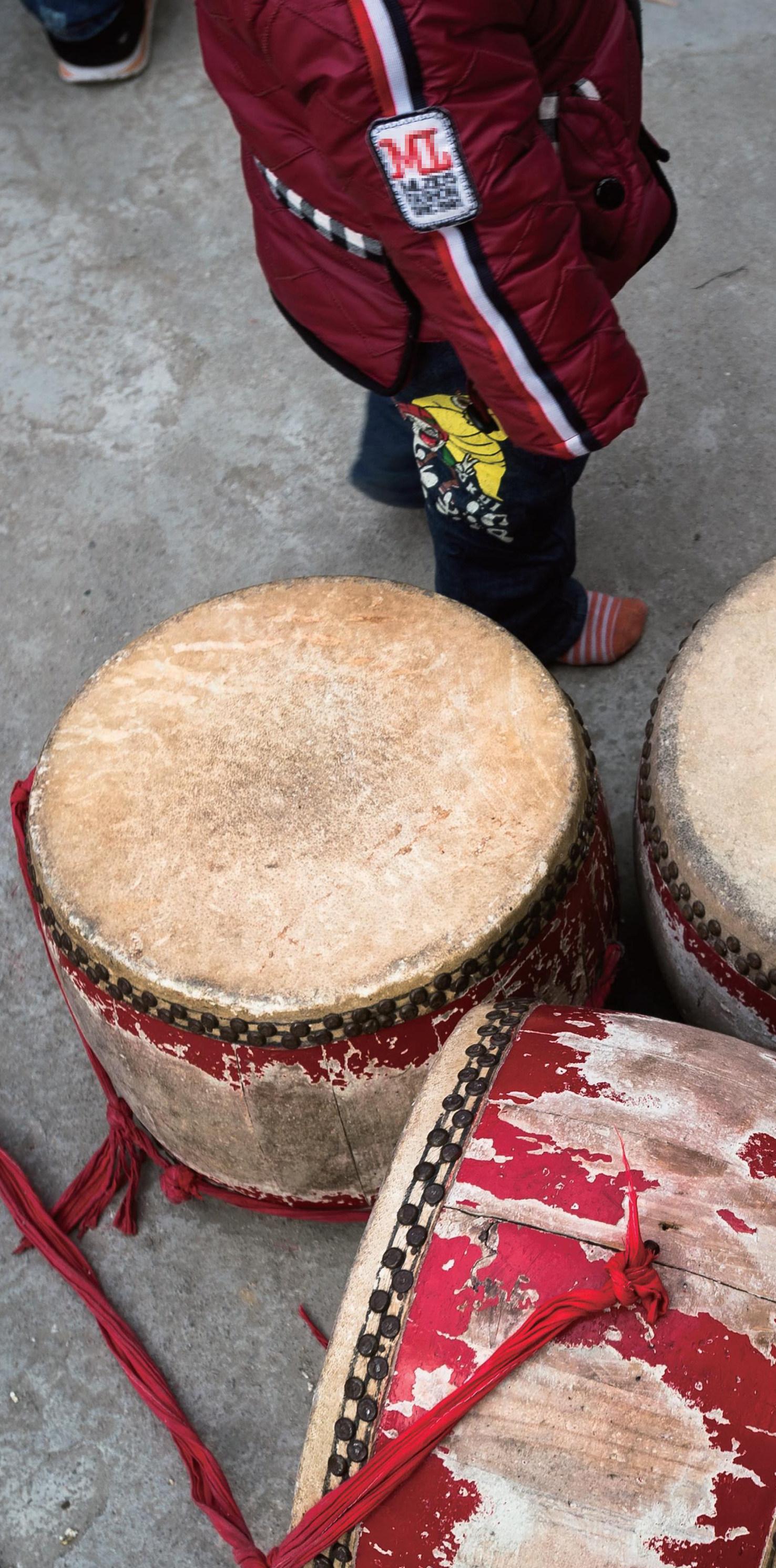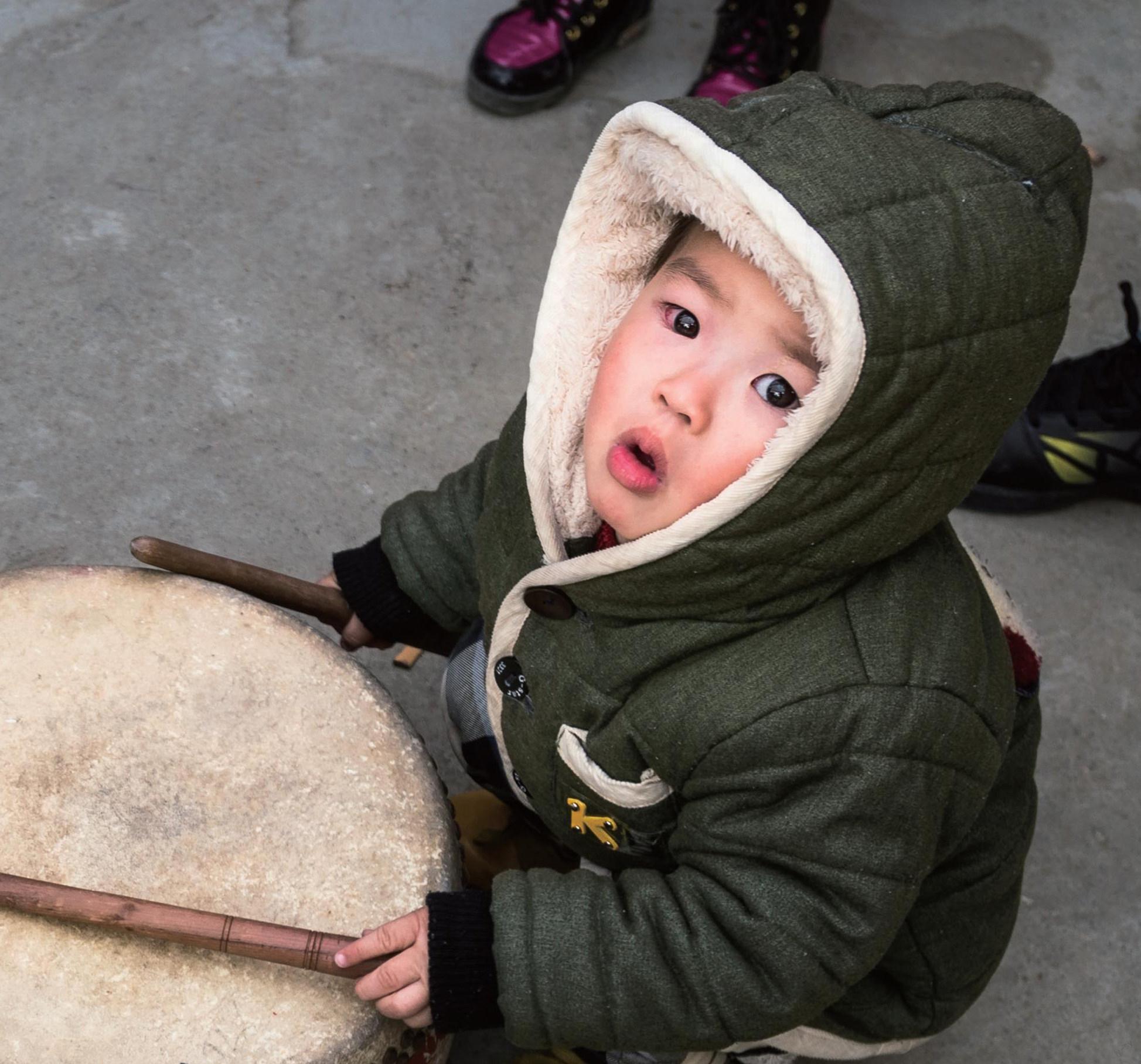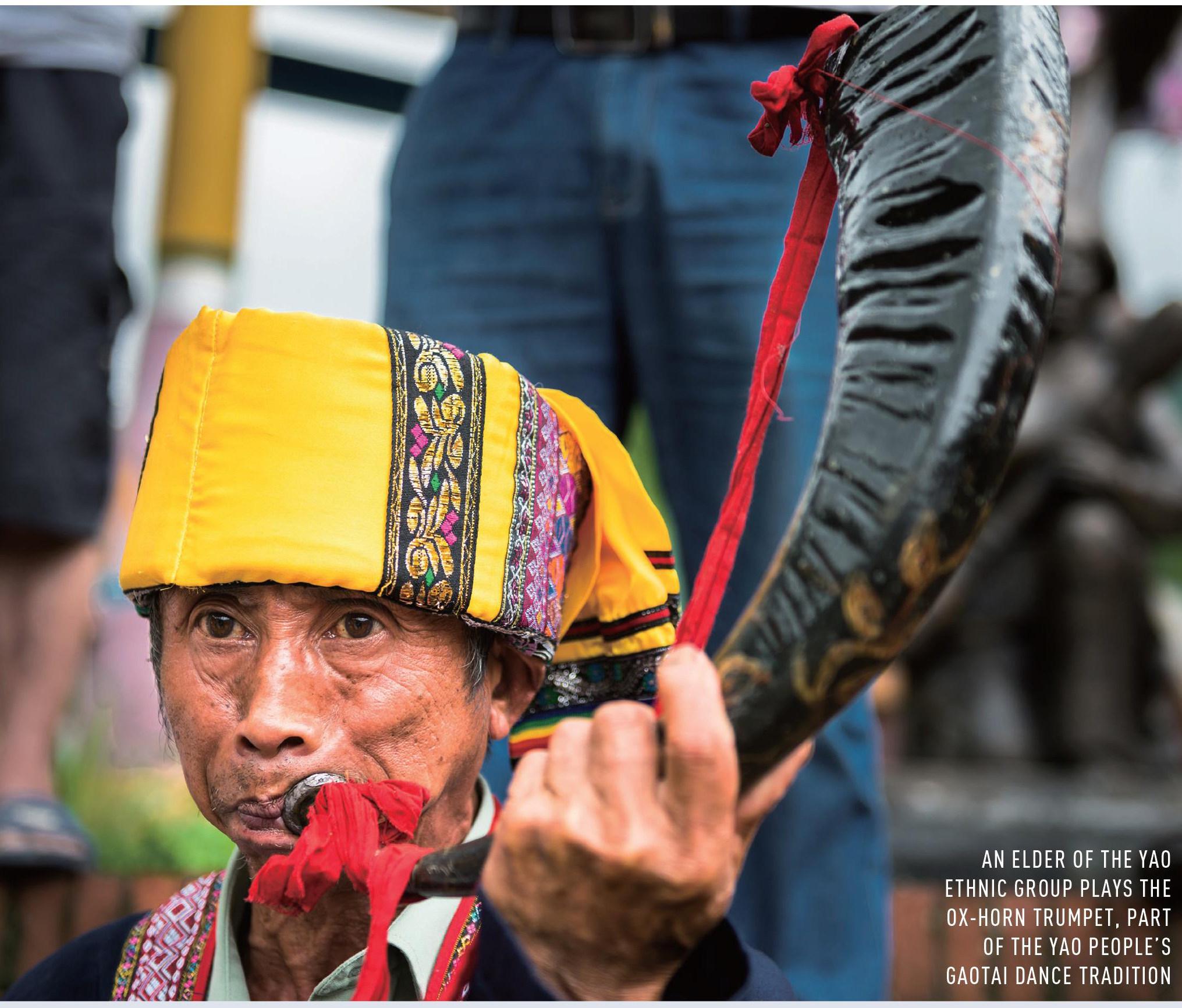Sounds of the Village
2022-05-30



Chinas village musicians provide a soundtrack to any occasion, happy or sad
鄉村乐手,奏响村镇大大小小悲喜场合的BGM
“Music is sound that comes from the feelings of the heart (乐者,音之所由生也,其本在人心之感于物也),” Confucius says in the Book of Rites(《礼记》). “If music be the food of love, play on,” wrote Shakespeare inTwelfth Night. These quotations about music are known around the world, but perhaps few people take them to heart more than Chinas rural musicians.
To Huang Ruide, a photographer focusing on folk culture in southern China, Confuciuss famous saying on music could be applied just as well to musicians—in fact, he playfully translates the quote as “musicians play from the feelings of the heart,” taking advantage of how乐者, referring to music, can also be translated into “person who plays music” in modern Chinese due to semantic changes. “Village players are not like musicians. The latter are professionals, but village players enjoyment of the music comes from their sense of mission,” says Huang. “To clear a path with gongs, to infect the atmosphere, to rally people with drums, to elevate tastes, and to entertain the public—thats their mission.”
In the countryside today, its still possible to see grassroots bands hired to play at traditional holidays, weddings and funerals, and ceremonies in ancestral halls, as well as practicing in squares, forests, and on street corners. They typically play traditional instruments made from brass and wood, such as the cymbal, gong, and high-pitchedsuonahorn; though some might also produce a violin or an accordion according to the new generations demands. What their instruments may lack in polish, the performers make up in enthusiasm, improvisation skills, and sometimes, sheer decibels. As traditional instruments and ritual fall out of fashion, these players face threats to their livelihood and the chance to pass on their skills to the next generation. But as long as music provides sustenance to rural social life, they play on.
An elder of the Yao ethnic group plays the ox-horn trumpet, part of the Yao peoples long drum dance tradition
Most villages in Guangdongs Chaoshan region have their own amateur bands. Here, one plays at the head of a ceremonial procession.
Hakka farmers organize an amateur band together
Cymbals play to welcome guests to “wrestle” with gods in a traditional ceremony in Huizhou, Guangdong
Local farmers serve as actors and musicians in Guangxis traditional “tea-picking opera (采茶歌)”
Whether their life is easy or hard, villagers become musicians as soon as they pick up their instruments
A gong opens the way for a parade of gods on the Chongyang Festival in Lianzhou, Guangdong
A villagesuonaband in Lianzhou, Guangdong, show off their skills on the double-reed pipe
Gongs are a favorite instrument for village ceremonies and bands in the Chaoshan region
